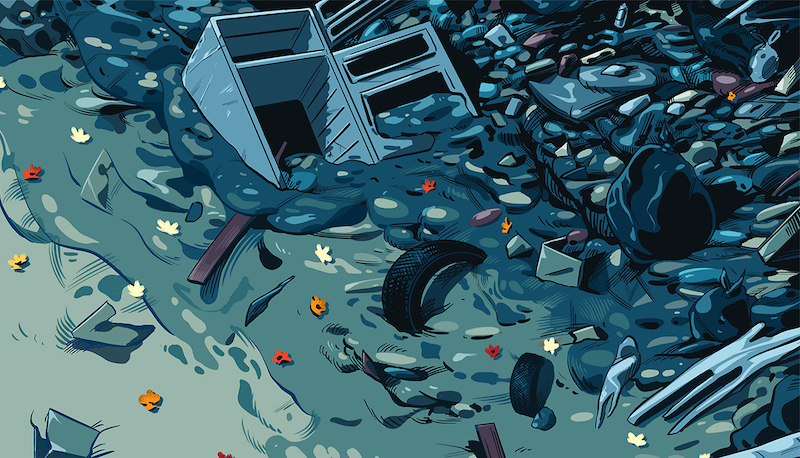The Challenge: How can we reduce the amount of methane, a heat-trapping gas, that human activity is putting into the atmosphere?
The Research: Harness a natural phenomenon, methane-eating bacteria, to deal with industrial production of the gas
The Players: Catherine Tays, '13 BSc, a PhD student in microbiology and chemical engineering, working with chemical engineering researcher Dominic Sauvageau and biological sciences researcher Lisa Stein
Sometimes nature provides a solution to our manufactured problems. Researchers just need to find a way to make that natural solution work for us. Bonus points: in solving one problem, these researchers have also found a useful byproduct.
What's better than solving a problem?
Solving the problem and discovering a new and useful non-toxic byproduct in the process.
What's the problem anyway?
Methane is a greenhouse gas, the byproduct of natural and industrial processes. It gets talked about less than CO2, but emissions of methane are rising at a higher rate and, compared with CO2, it traps more heat. About 60 per cent of methane emissions are caused by human activity. (Researchers are working to address at least one other cause: cow burps.)
You can't 'solve' methane!
Nature already has. Methane-eating bacteria exist and Catherine Tays, '13 BSc, is working on ways to harness the phenomenon on an industrial scale. Optimizing the process would let the bacteria deal with methane at the source, for example, in oilsands wastewater treatment plants, pulp and paper mills, and even landfills.
So what's the useful byproduct?
These hungry methane eaters (called methanotrophs) digest the delicious methane and, when they do, they produce compounds called metabolites. "Then we collect the metabolites to make stuff," she says. The aim is to make biodegradable plastics and biofuels out of them, she says. "We need to grow the bacteria better, persuade them to do what we want them to do." Tays, who has been supported by a donor-funded scholarship, says commercial production is the big goal.
What attracted her to working with bugs that eat gas?
Since she was a child, she wanted to help solve climate change, Tays says. "Every little girl wants to save the planet."

We at New Trail welcome your comments. Robust debate and criticism are encouraged, provided it is respectful. We reserve the right to reject comments, images or links that attack ethnicity, nationality, religion, gender or sexual orientation; that include offensive language, threats, spam; are fraudulent or defamatory; infringe on copyright or trademarks; and that just generally aren’t very nice. Discussion is monitored and violation of these guidelines will result in comments being disabled.